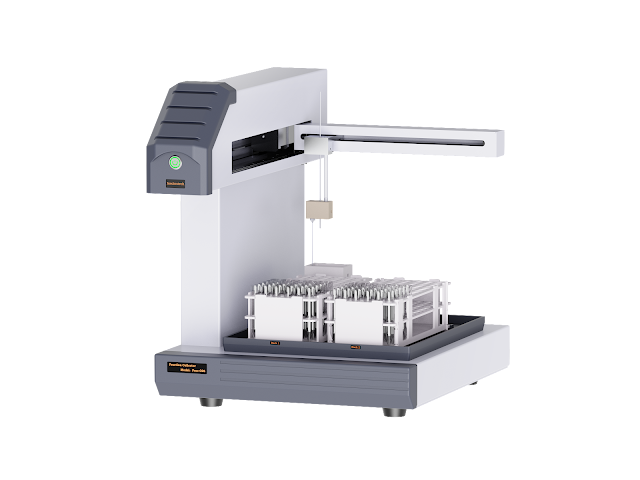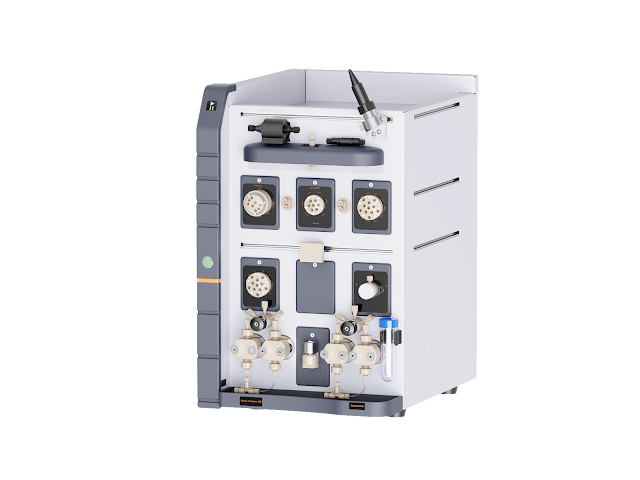Comprehensive Guide to Chromatography Techniques for Beginners
Chromatography is a captivating and fundamental procedure in the realm of science. Whether you're an understudy simply starting out or a professional hoping to grow your insight, this comprehensive guide to chromatography techniques for beginners will demystify this strong strategy for detachment and analysis.
Understanding Chromatography
Chromatography, at its centre, is a technique used to isolate and break down combinations. It works by taking advantage of the various cooperations between the particles in a blend, a fixed stage (often a strong or liquid), and a versatile stage (generally a gas or liquid). The outcome? A partition of the blend into its singular parts.
Sorts of Chromatography Techniques
There is a wide assortment of chromatography techniques, each with its own particular application:
Gas Chromatography (GC): GC is ordinarily used to dissect unpredictable substances, like hydrocarbons, in different businesses, including natural testing and forensics.
Liquid Chromatography (LC): LC is a flexible technique used to recognize and assess different synthetic substances, making it important in drugs, food analysis, and natural monitoring.
Superior Performance Liquid Chromatography (HPLC): HPLC is a high-goal form of LC known for its accuracy and speed. It is every now and again utilized in drug quality control and examination laboratories.
Slight Layer Chromatography (TLC): TLC is a basic and practical technique often utilized for fast subjective analysis in instructive settings and limited-scope labs.
Size-Exclusion Chromatography (SEC): SEC is utilized to isolate particles in view of their size, making it ideal for portraying polymers and biomolecules.
Basic Principles of Chromatography
Chromatography depends on two key principles: parcel and adsorption. Parts of a combination disseminate themselves between the fixed and versatile stages in view of their fondness for each stage. This differential conveyance prompts partition.
Applications of Chromatography
The applications of chromatography are sweeping:
Drugs: It's pivotal for drug formulation, quality control, and pharmacokinetic studies.
Food Analysis: Chromatography distinguishes added substances, impurities, and wholesome parts in food items.
Natural Science: It's utilized to monitor contaminations in air, water, and soil to guarantee the well-being of our biological systems.
Forensic Analysis: Chromatography helps with recognizing substances in criminal examinations and toxicology.
Biotechnology: It is fundamental for the purging of biomolecules like proteins and DNA.
Starting Your Chromatography Journey
In the event that you're new to chromatography, start with basic techniques like paper chromatography or Tlc. These techniques are not difficult to get a handle on and require negligible gear. As you gain certainty and experience, you can wander into further developed techniques like HPLC or GC.
Sample Preparation Matters
One basic part of effective chromatography is legitimate sample preparation. Guarantee your sample is spotless, liberated from pollutants, and fittingly weakened if vital. Good-to-go samples lead to additional exact and dependable outcomes.
Interpreting Chromatograms
Chromatograms might look complicated from the get-go; however, with training, you'll become skilled at interpreting them. Understanding pinnacles, maintenance times, and region under bends is fundamental for recognizing and measuring parts in your blend.
Conclusion,
For those looking for synthetic analysis instruments, Inscinstech Co., Ltd. stands apart as an inventive, cutting-edge venture. With an emphasis on innovation and a guarantee to diminishing customer working expenses while conveying worth to clients around the world, Inscinstech Co., Ltd is a confided-in accomplice in the realm of chromatography. Investigate the interesting universe of chromatography and perceive how it can transform your work and exploration.

.jpg)

Comments
Post a Comment